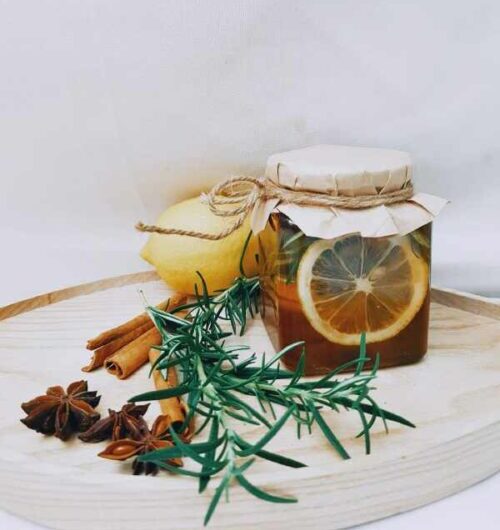Herbal teas, often known as tisanes, are a delightful and versatile category of beverages made from the infusion of various plant parts, including leaves, flowers, seeds, and roots. Unlike traditional teas that come from the Camellia sinensis plant, herbal teas offer a vast array of flavors and potential health benefits. This guide will explore the world of herbal teas, providing insights into their types, benefits, and how to brew the perfect cup.
Contents
What Are Herbal Teas?
Herbal teas are infusions made from herbs, fruits, flowers, and spices rather than actual tea leaves. These blends can be enjoyed hot or cold, depending on your preference. Unlike true tea, which contains caffeine, most herbal teas are naturally caffeine-free, making them an excellent choice for those looking to reduce their caffeine intake or drink a soothing beverage before bedtime.
Types of Herbal Teas
Herbal teas come in numerous varieties, each with unique flavors and properties. Here are some popular types:
- 1. Chamomile Tea
Known for its calming properties, it is often used to promote relaxation and aid sleep. Chamomile is also praised for its anti-inflammatory and digestive benefits. - 2. Peppermint Tea
This tea has a refreshing, cooling effect and is often consumed to alleviate digestive issues, such as bloating and indigestion. Its menthol content provides a soothing sensation for the throat. - 3. Ginger Tea
Ginger tea is brewed from fresh or dried ginger root. It is celebrated for its warming properties and is commonly used to relieve nausea, improve digestion, and support immune health. Ginger tea also has anti-inflammatory effects that can help ease muscle pain and soreness. - 4. Rooibos Tea
Rooibos tea, also known as red tea, comes from the Aspalathus linearis plant native to South Africa. Rooibos tea is often consumed to support cardiovascular health and enhance overall well-being. - 5. Hibiscus Tea
This tea is known for its high vitamin C content and potential benefits for lowering blood pressure and supporting heart health.
Also Visit: Unlock the Power of Wellness: Why Vitamin D is Important for Your Health and Well-being
Health Benefits of Herbal Teas
Herbal teas offer a range of potential health 9benefits, making them a popular choice for those seeking natural remedies and wellness supports.
- 1. Promotes Relaxation and Better Sleep
Herbal teas like chamomile and valerian root are well-known for their calming effects. Drinking these teas before bedtime can help reduce anxiety and promote a restful night’s sleep. Their gentle, soothing qualities make them ideal for winding down after a long day. - 2. Supports Digestive Health
Teas such as peppermint and ginger can be particularly beneficial for digestive health. Peppermint tea helps relieve symptoms of indigestion and bloating, while ginger tea aids in digestion and can alleviate nausea. Incorporating these teas into your daily routine can help maintain a healthy digestive system. - 3. Boosts Immune System
Certain herbal teas are packed with antioxidants and vitamins that support immune function. Hibiscus tea, for example, is rich in vitamin C, which can help boost your immune system and protect against common illnesses. Ginger and echinacea teas are also known for their immune-enhancing properties. - 4. Provides Anti-Inflammatory Benefits
Herbal teas such as ginger and turmeric have anti-inflammatory properties that can help reduce inflammation in the body. Regular consumption of these teas may help manage chronic conditions such as arthritis and improve overall joint health. - 5. Aids in Detoxification
Herbal teas like dandelion and nettle are often used for their detoxifying effects. These teas can support liver function and promote the elimination of toxins from the body. Drinking detoxifying herbal teas can be a beneficial addition to a balanced diet and healthy lifestyle.
How to Brew the Perfect Herbal Tea
Brewing herbal tea is a straightforward process, but following these steps can help ensure you get the most flavor and benefits from your herbs.
- 1. Choose Your Herbs
Start by selecting high-quality, fresh or dried herbs. You can purchase pre-blended herbal teas or create your own blends using individual herbs. Be sure to choose herbs that match your taste preferences and desired health benefits. - 2. Measure Your Ingredients
Adjust the quantity based on your taste preferences and the strength of the herbs. - 3. Boil Water
For delicate herbs like chamomile or hibiscus, you may want to use slightly cooler water to avoid bitterness. - 4. Steep the Herbs
Place the herbs in a tea infuser or directly in your cup. Pour the boiling water over the herbs and let them steep for 5-10 minutes, depending on how strong you like your tea. Covering the cup while it steeps can help retain the essential oils and flavors. - 5. Strain and Serve
After steeping, strain the herbs from the tea using a fine-mesh strainer or remove the infuser. Serve your tea hot or chilled, depending on your preference. You can add a touch of honey, lemon, or other natural sweeteners if desired.
Conclusion
Herbal teas offer a diverse and flavorful alternative to traditional caffeinated beverages, with each type providing unique benefits and characteristics. Whether you’re looking for a soothing cup to help you relax or a refreshing blend to support your health, herbal teas provide a natural and enjoyable way to enhance your well-being. By exploring the various types of it and understanding their benefits, you can find the perfect blend to suit your taste and health needs. Enjoy the journey of discovering the world of herbal teas and savor the many flavors and benefits they have to offer.
